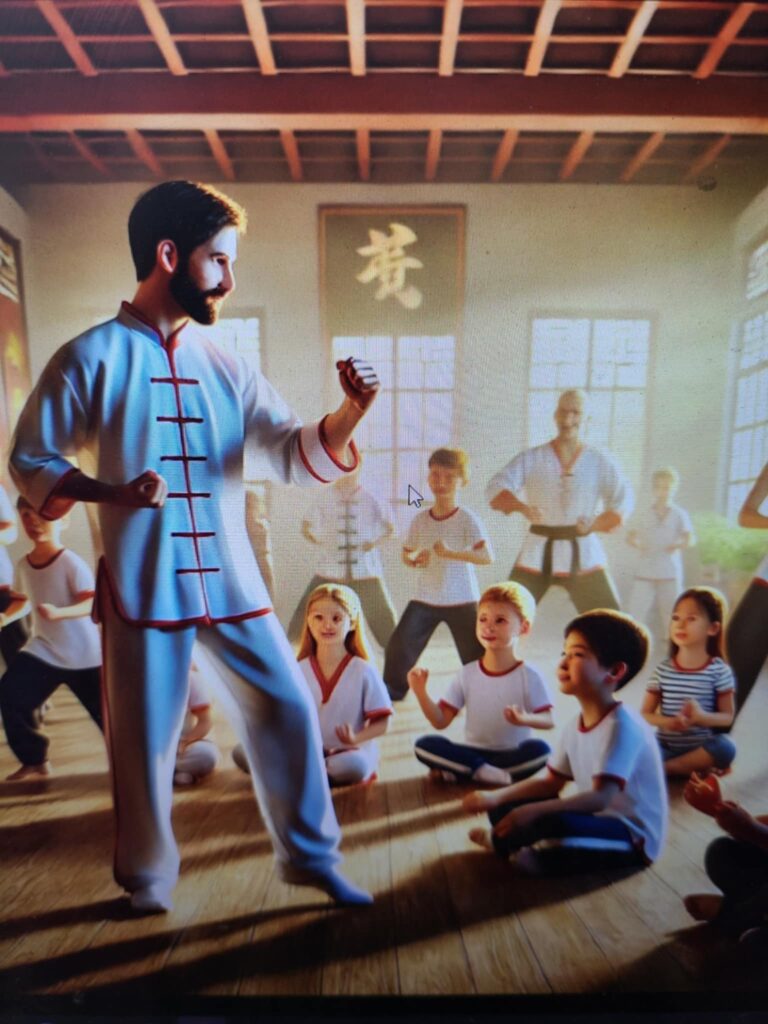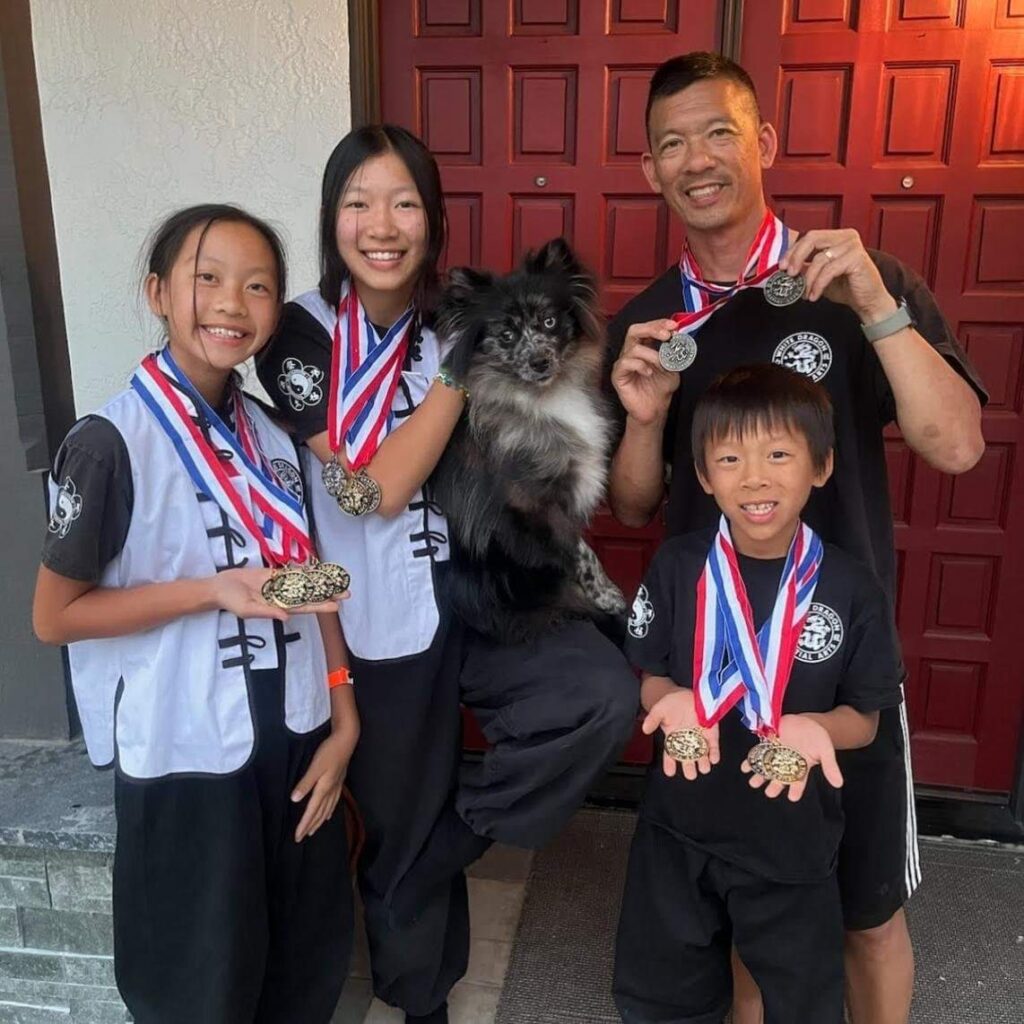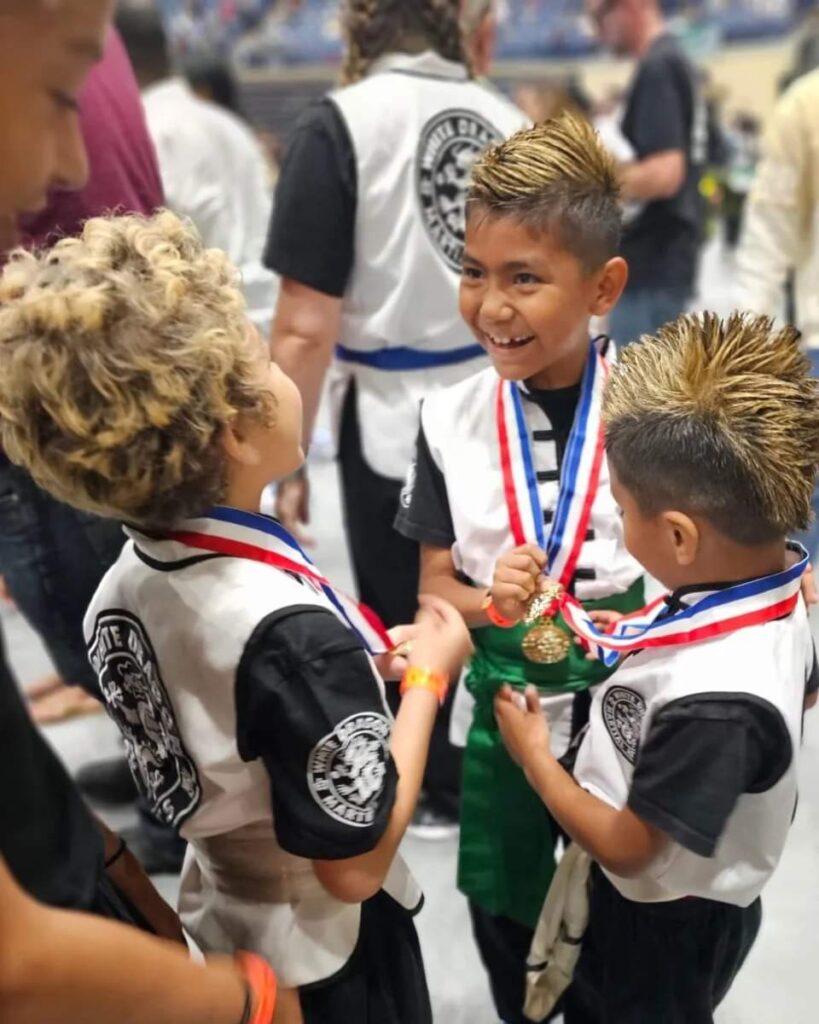The Role of Routine: How Martial Arts Helps Children Thrive
By Sifu Martin – White Dragon of East County
In a world filled with distractions and constant change, children often struggle with finding consistency and focus. As a martial arts Sifu with over 40 years of teaching experience, I’ve seen firsthand how structured martial arts training provides children with a powerful foundation for personal growth, stability, and success. Routine is not just a tool for organization—it’s a catalyst for helping children thrive physically, mentally, and emotionally.
The Power of Routine in Child Development
Children thrive on structure and predictability. According to child development experts, routines help kids feel safe and secure, which is essential for emotional and cognitive development. A regular schedule gives children a sense of control and promotes self-discipline and responsibility.
Martial arts training is built on routine—consistent practice, repetitive skill-building, and rituals that reinforce focus and respect. These elements provide an ideal environment for children to develop habits that serve them well beyond the dojo.
A Few Key Benefits of Routine:
- Reduces Anxiety: Knowing what to expect helps children feel less overwhelmed.
- Builds Confidence: Repetition and mastery of skills boost self-esteem.
- Encourages Independence: A structured environment allows kids to take ownership of their learning process.
How Martial Arts Provides Structure
In martial arts, every class follows a predictable format. From the moment students bow in, they enter a world of discipline, respect, and focus. Warm-ups, forms practice, self-defense techniques, and cool-downs all happen in a logical sequence. This consistency reinforces positive habits and gives children something to rely on, even when life outside the dojo feels unpredictable.
Setting Goals Within the Routine
One of the most powerful aspects of martial arts is its goal-setting process. Children learn to work toward earning their next belt, which requires consistent effort and perseverance. The goal is clear, but the path involves mastering smaller skills along the way—an important life lesson in breaking down challenges into manageable steps.
When children experience the reward of achieving these goals, they begin to understand the value of hard work and persistence. This mindset often carries over into their academic performance and other extracurricular activities.
Example:
I remember teaching a young student named Alex, who initially struggled with focus and organization. After just a few months of consistent martial arts practice, his teachers at school started noticing improvements. His grades improved, and he became more engaged in class. Alex’s parents credited the structured environment of the dojo for this transformation.
Routine and Emotional Resilience
Beyond the physical and mental benefits, a consistent martial arts routine also helps children develop emotional resilience. Life will always bring challenges, but having a stable routine gives children a sense of grounding and confidence in their ability to overcome difficulties.
In martial arts, children learn how to handle setbacks—whether it’s a missed technique, a sparring loss, or the frustration of learning a difficult move. Over time, they build the emotional strength to persevere and bounce back from these experiences.
Mindfulness and Routine
Martial arts isn’t just about physical movements; it’s also about mindfulness. Regular practice encourages children to be present in the moment, focusing on their breath, posture, and intention. This connection between body and mind strengthens their self-awareness and emotional regulation, reducing impulsive behavior and enhancing their ability to cope with stress.
Parental Involvement in Routine
When parents get involved in their children’s martial arts journey, the routine becomes even more powerful. Family participation not only reinforces the importance of structure but also strengthens the bond between parent and child. Even attending classes together as a family promotes shared experiences and deeper communication.
Scientific Support for Routine
Research supports the role of structured activities in child development. According to a study published in the Journal of Applied Developmental Psychology, children who engage in structured extracurricular activities—such as martial arts—display higher levels of emotional regulation, social competence, and academic achievement. (Source: Journal of Applied Developmental Psychology)
Conclusion: Building Lifelong Skills
Routine in martial arts isn’t just about developing better kicks and punches—it’s about laying the groundwork for lifelong success. Children learn discipline, responsibility, and the value of consistent effort, all while building their physical strength and mental resilience.
If you’re looking for a way to help your child thrive in all areas of life, consider enrolling them in martial arts. You’ll be amazed at how quickly they grow in confidence, focus, and emotional maturity.
Ready to get started?
Join us for a free private lesson and a week of group classes! Click here to claim your free lesson!



